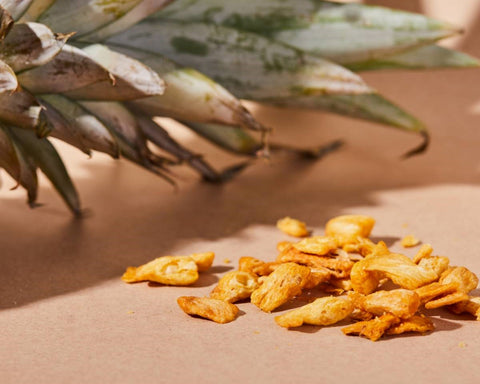
World Food Day: the relationship between hydration, food sustainability and mindfulness
Share
World Food Day is celebrated annually on October 16th to commemorate the founding date of the Food and Agriculture Organization of the United Nations (FAO), one of the agencies leading efforts to eradicate hunger and various other issues relating to food safety and quality. (1)
This day is celebrated by many other organizations, including the World Health Organization, with a different theme for reflection each year.
Water is life, water is food. Leave no one behind is the theme for 2023, which we will reflect on throughout this article, also combining the issue of sustainability and mindfulness at mealtimes, two other very pertinent themes these days.(1)
Hydration
Water is vital for almost all of the body's functions. Among the most important ones are:
- Transportation of nutrients and oxygen;
- Elimination of toxins;
- Regulation of body temperature;
- Balance and proper functioning of all cells;
However, despite the importance of water for health, a large part of the population still drinks insufficient amounts of water for their needs and can experience several harmful consequences, including lack of concentration, irritability, increased desire to eat, changes in blood pressure, dizziness, among others.(1)
In this sense, for most adults, it would be important to have a water intake of around 1.5l/day, which corresponds to around 8 glasses of 200ml.
As strategies to help you drink more water, we suggest:
- Always have a bottle of water nearby, whether at home, at work or in the car.
- Set alarms on your cell phone or use an app that reminds you to drink water.
- Flavor your water: Add lemon, mint, cinnamon or fruit to flavor your water and make it easier to drink.
- Keep records of your consumption, it will help you keep better track of your progress.
- Associate drinking water with other activities, such as getting up, going to the bathroom, finishing a task at work, etc.
- Use foods that are naturally rich in water in your meals, such as fruit, vegetables, soup and dairy products.
Sustainability and Food Balance
Following on from what was said earlier, diet is directly linked to hydration, not only because all foods are made up of water, but also because water is important for the proper functioning of the digestive system.(1)
In this sense, including water-rich foods in the daily diet can be a good strategy for improving hydration, with the advantage that most of these foods are nutritionally interesting and can also contribute to sustainability and lower consumption of the planet's resources.(1)
Here are some examples:
- Fresh fruit - you should always respect seasonality and opt for seasonal fruit, of national origin, to minimize the pollution caused by transport and the use of water to grow it;
- Vegetables - for most vegetables, the water content exceeds 80% and they are also concentrated sources of vitamins, minerals and antioxidants that are important for health. As with fruit, make conscious choices and opt for vegetables produced domestically and according to the season.
- Pulses - beans, chickpeas, peas - are some examples of this food group, which is a much more sustainable source of protein than animal sources.

- Nuts - walnuts, hazelnuts, almonds - are excellent sources of nutrients, including fiber and omega-3, and are also sustainable foods that require little water to grow.
Mindful eating
Finally, we have "mindfulness", a topic that is gaining notoriety as a way of reducing high levels of stress, by living in and enjoying more the present moment.(2)
And this concept should also apply to eating and mealtimes. Whenever you're having a meal or eating something, you should concentrate on the moment, chew slowly and avoid distractions so that you can really appreciate and taste it. (2)
In this way, you'll be more likely to avoid overeating caused by emotional situations or prolonged fasting. This state also seems to allow you to eat more consciously and focus on the benefits it can bring to your body.(2)
Conclusion
World Food Day is a good opportunity to review our eating habits.
By linking the 3 concepts discussed above, we can see that mindfulness at every meal can lead to healthier and more sustainable food choices, and that these choices can also be linked to improvements in hydration.
Within our range of snacks, you can find several options that meet these criteria, namely:
- Nuts with Dried fruit mixes;
- Cereal bars with nuts;
- Fruit balls and bars with real fruit content;
- Dehydrated fruit.

In short, by opting for more natural, plant-based and locally produced foods, you can improve your hydration and health, while at the same time making your diet more sustainable.
And finally, never forget to fully enjoy "your moment" at mealtimes, paying attention to what you're eating!
Bibliography:
(1)Food and Agriculture Organization of the United Nations. (2023). World Food Day. Retrieved from https://www.fao.org/world-food-day/en/
(2) Apper, K. (2022). Mindful eating: What we know so far. Nutrition Bulletin, 47(2), 168-185. https://doi.org/10.1111/nbu.12559
Author:
Rita Lima (CP.3003N)
